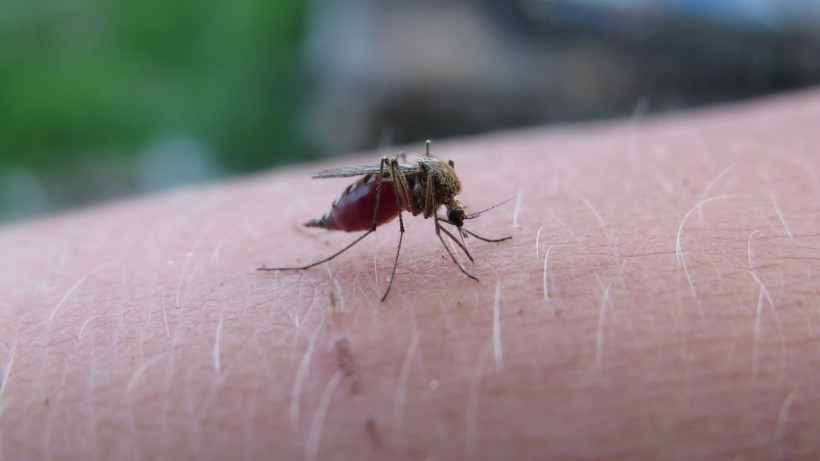Malaria is an infectious disease spread by mosquitoes. Its management is impeded by drug resistance development in the causal agent, protist parasites of the genus Plasmodium, and mosquito pesticide resistance. Due to this, new techniques for combating malaria are required to improve treatment efficacies, and research into tailored medication delivery is growing.
Now, researchers from the University of Twente presented a novel technique that uses single-chain polymer nanoparticles (SCNPs) to target the malaria parasites at the ookinete stage, a developmental stage of Plasmodium when it invades the midgut of female mosquitoes.

Unique Approach in the Battle Against Malaria Uses Nanoparticles That Attack the Parasite
Treating Malaria-Infected Mosquitoes
According to the Centers for Disease Control and Prevention (CDC), malaria is one of the most severe public health issues worldwide and is the leading cause of death and disease in developing countries, affecting children and pregnant women at most.
What makes it harder to eradicate is, in part, that the parasites acquire drug resistance over time. The malaria parasite passes through several stages of development in both people and mosquitos.
According to Phys.org, traditional treatment approaches target the parasite in humans, but such medical research takes a long time and must adhere to stringent guidelines to ensure patient safety. Researchers have also attempted to attack the mosquito with chemicals; however, this has resulted in pesticide resistance in mosquitoes.
As a result, experts at research centers such as TechMed Centre and MESA+ are concentrating on mosquito treatment. Lead author Dr. Naomi Hamelmann said that they treat mosquitoes as if they are a patient by targeting the parasite in the ookinete stage.
That stage is when the parasite is a mobile small worm, wherein around 10 to 15 infects a mosquito. Hamelmann noted that the principle of treating malaria in that way is that it is easier to target the parasite at that stage than at various stages in humans when there could be thousands throughout the body.
READ ALSO: Genetically-Modified Fungus May Stop the Spread of Malaria
Nanoparticles Against Malaria Parasite
Researchers developed nanoparticles made of a single polymer chain to which they could attach a medication, per the press release.
Associate professor Jos Paulusse said they used a single polymer per nanoparticle that is then linked to itself to form spherical particles at very tiny and uniform scales. That means each nanoparticle is the same size as the other.
The scientists demonstrate that nanoparticles may be used to tackle the parasite specifically. Paulusse explains that they allowed the nanoparticles to emit light, making it easier to see them entering the parasite.
They successfully created a new technique to find the parasite precisely. The team's next step is finding the right substance to kill the malaria parasite in mosquitoes.
They discussed their findings in full in their study, titled "Single-Chain Polymer Nanoparticles Targeting the Ookinete Stage of Malaria Parasites," published in the journal ACS Infectious Disease.
RELATED ARTICLE: Malaria Transmission: Scientists Engineer Mosquitoes to Slow Growth of Parasites That Cause the Disease
Check out more news and information on Mosquitoes in Science Times.



![Earth's Quasi-Moon Kamo‘oalewa Could Originate From Lunar Surface Not Asteroid Belt [Study]](https://1721181113.rsc.cdn77.org/data/thumbs/full/53275/89/56/50/40/earths-quasi-moon-kamo-oalewa-could-originate-from-lunar-surface-not-asteroid-belt-study.png)










